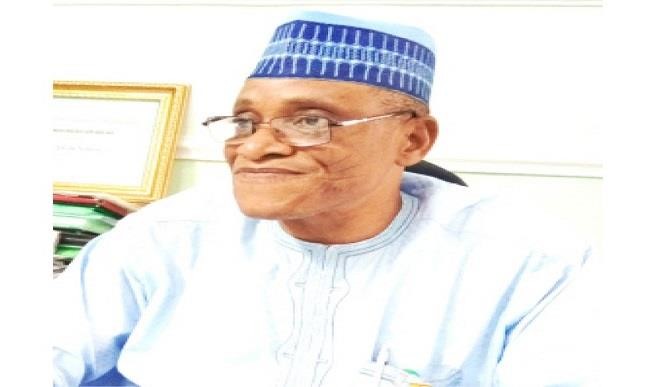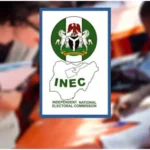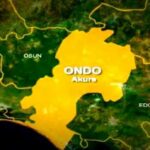
How have you been addressing the challenge of infrastructure in rural schools in the FCT?
Thank you very much. I just want to assure that we are very much aware of the infrastructural deficit in our schools. We have over 700 primary and junior secondary schools, excluding the early child development education centers, which are about 326. If you add all of them, you can see that we have over a thousand.
Now, to provide infrastructure for these schools is not possible at the same time. The FCT Administration is doing its best to make sure that infrastructure, such as classes, laboratories and so on and so forth are provided to our schools. We have something we call ‘counterpart fund’ where FCT provides money and then the UBE commission gives us the same amount of money.
So the FCTA, under the minister approved that money, which had been released to provide infrastructure like construction of new classrooms, renovation of those that are bad, especially some that are affected by rain storm.
For you to do that, you have to go through procurement process, and we have the money cash in our account but government money is not taken that way, as there are processes that are followed to take this money.
So I want to tell you that any moment from now, procurement process would be concluded and then contracts would be awarded for contractors to be mobilized to those schools that are bad. And those schools that don’t have enough classrooms would be given classrooms. You should know that our enrollment is increasing. The number of our schools are increasing and we would not be able to handle these things at the same time. It takes time because when you are increasing classrooms, more students are coming in and you need more teachers and instructional materials. And while you are doing that, the infrastructure you have renovated for 8, 9 to 10 years ago, equally needed renovation, and then, of course you find out that at the beginning and end of rainy season, rain storm comes and then destroys some schools. But don’t forget too that you know the present economic recession, as it is not easy to get reasonable amount of money to attend to these schools at the same time, but as far as FCT is concerned, we are doing our best to make sure that infrastructure are provided adequately for teaching and learning processes across the schools in FCT.
What are you doing to also address the issue of inadequate teachers especially in rural schools of the FCT?
The issue of inadequate teachers in schools is another challenge. You see, when the number of schools are growing, the number of classes increase and we need more teachers. But when you say you are employing teachers, you are not just going to recruit teachers and give them appointment letters, you have to give them their monthly salaries. For example, if today, you are employing 3,000 teachers, you have to think of your capacity to pay them. And of course FCT is one of the lucky states that have the capacity to pay their teachers as at when due, including their allowances and promotions. So we don’t have any problem with our teachers. We try as much as possible from time to time, to employ. Any time we send a memo to the FCT minister and he approves it we engage new teachers. Last year, we employed 109 teachers to replace those that exited service, but it is not easy for you to now embark on teachers recruitment. Where do you have the money to pay them? But it is in the plan of the FCT Administration to make sure that teachers are recruited as soon as the economy of the country improves.
What measure has the board put in place to motivate teachers that teach in rural schools?
It may interest you to know that it is only in FCT that we have what we call urban and rural teachers allowances. Those who are teaching in urban centers have teaching allowances of 8 percent added to their basic salaries, while those who are posted to rural areas have 12 percent added to their basic salaries, which is part of motivation.
Besides, in FCT we have teachers’ salaries enhancement scheme and not only that, it is only in FCT that teachers get their normal promotion. As I am talking to you now our head of administration is going round to carry out screening of teachers for promotion. So whatever allowances that are due to them are paid as at when due. So the teachers are properly motivated and we don’t have any problem in that regard.
FCT area council chairmen are complaining that the amount that goes for payment of teachers’ salaries is huge. Do you have the same problem at your own level and have you conducted personnel audit to see if there are ghost workers?
The honorable minister has set up a committee through the FCT permanent secretary, Dr. Babatope Ajakaiye, and the committee has concluded its work and any moment from now, the report will be made public. It is obvious that the council chairmen will complain because the salary structure in the FCT is not like that of other states. Our salary structure is very huge and besides, we have six area councils and we have over 570 primary schools as at today, which is not easy to run. Some area councils like AMAC have 147 schools, Kuje has 99, and the teachers’ salaries are taken directly from the area councils’ coffers and that depletes their monthly allocation. They are complaining because they no longer get what they normally get in the past, since oil price dropped. If you can recall about four years ago, no area council complained about teachers’ salaries here in Abuja. It is just from 2014, 2015 and 2016 that things changed.
What are your achievements so far since you assumed office as the director of the FCT UBEB?
First of all, before I talk about achievements, we have several challenges and we need people to support us in providing basic education. We want people to adopt our schools, we want people to adopt one of our classes or to adopt our children. I mean you go to a class and identify a child to provide him or her with school uniform, exercise books and other necessary items such child requires to go to school. I believe it will not cost up to N3,000 to adopt such a child. However, our major challenge is money. We have many schools and structures, we need a lot of materials for most of our schools. It is when we have these materials that our teachers can teach. For you to teach very well, you need to have such materials.

 Join Daily Trust WhatsApp Community For Quick Access To News and Happenings Around You.
Join Daily Trust WhatsApp Community For Quick Access To News and Happenings Around You.


